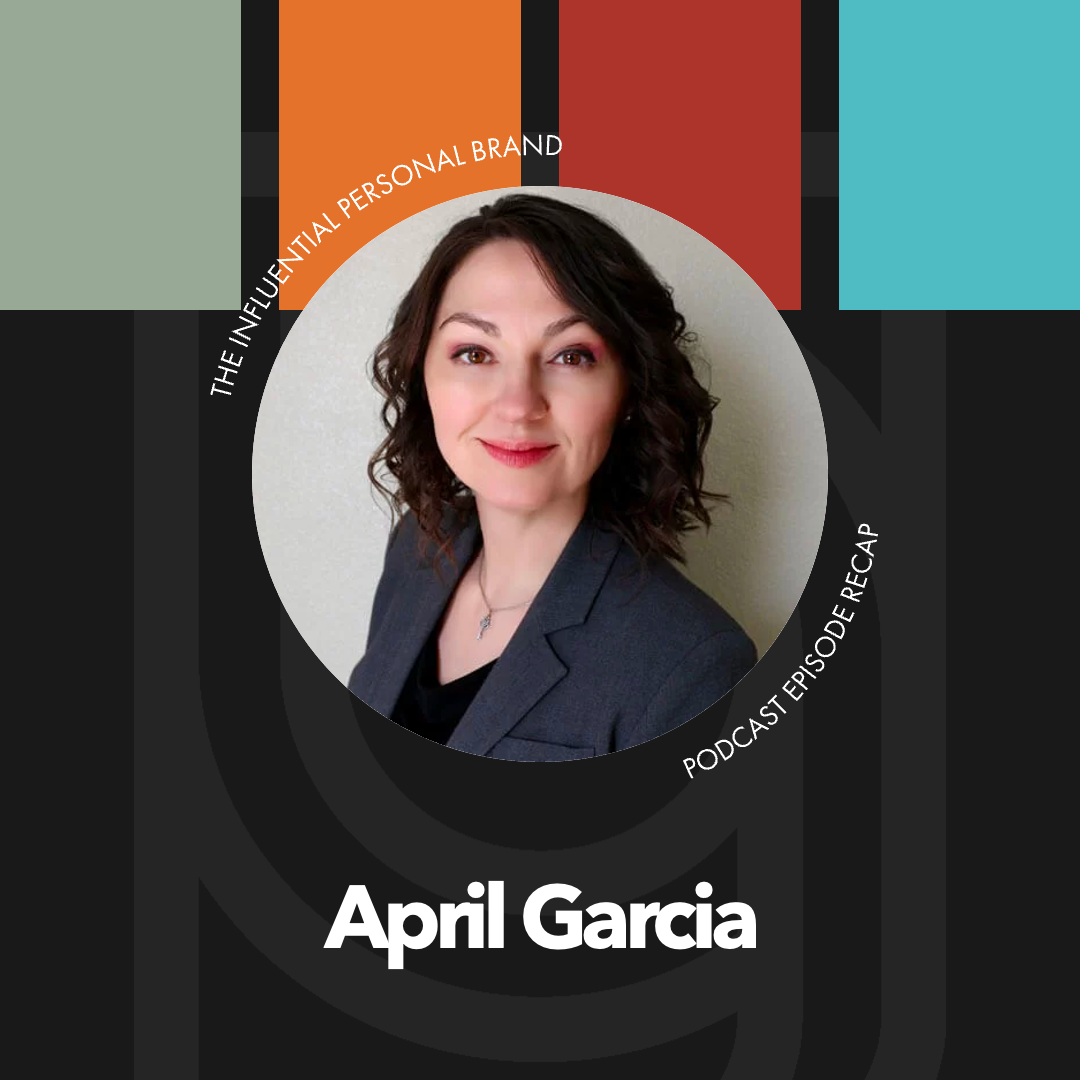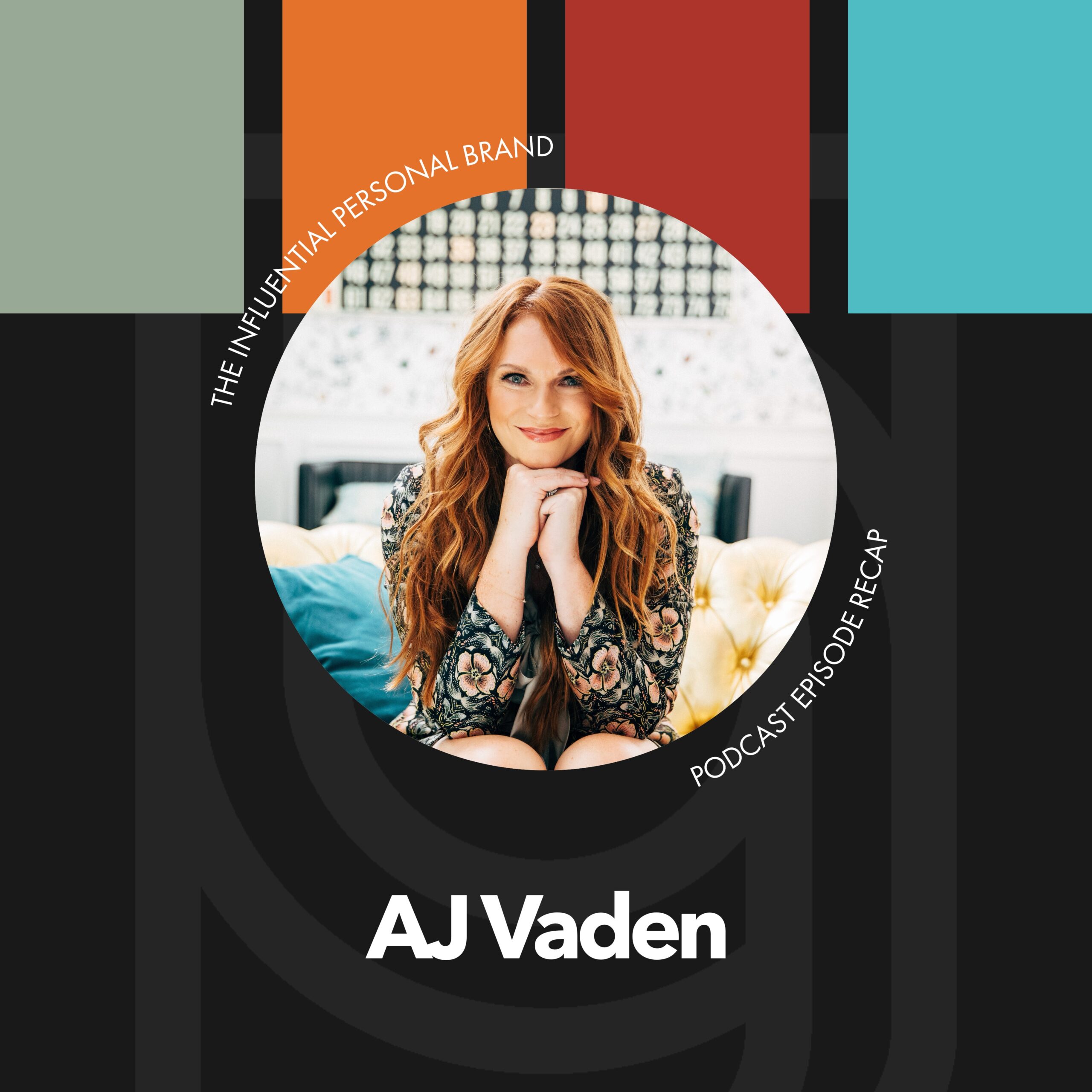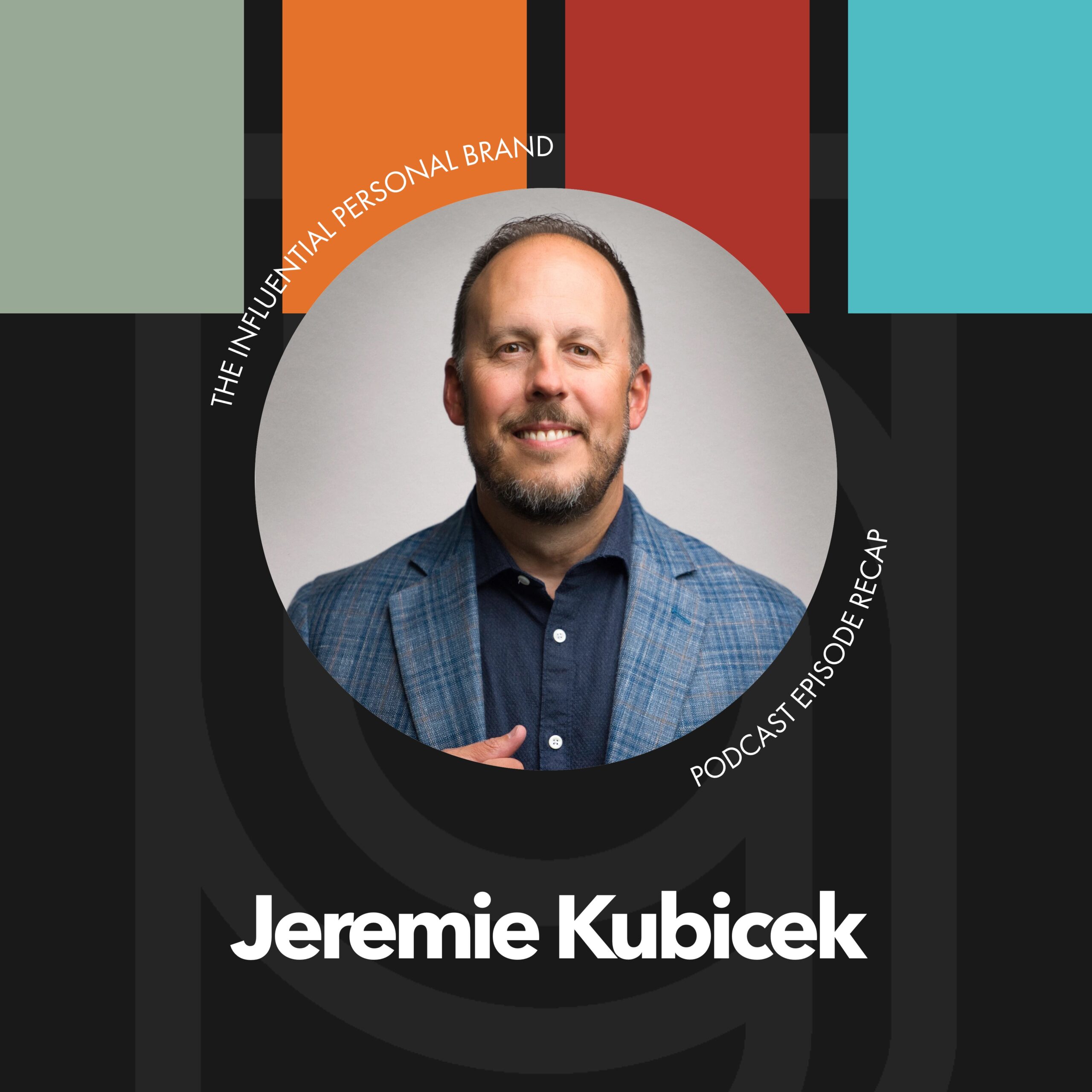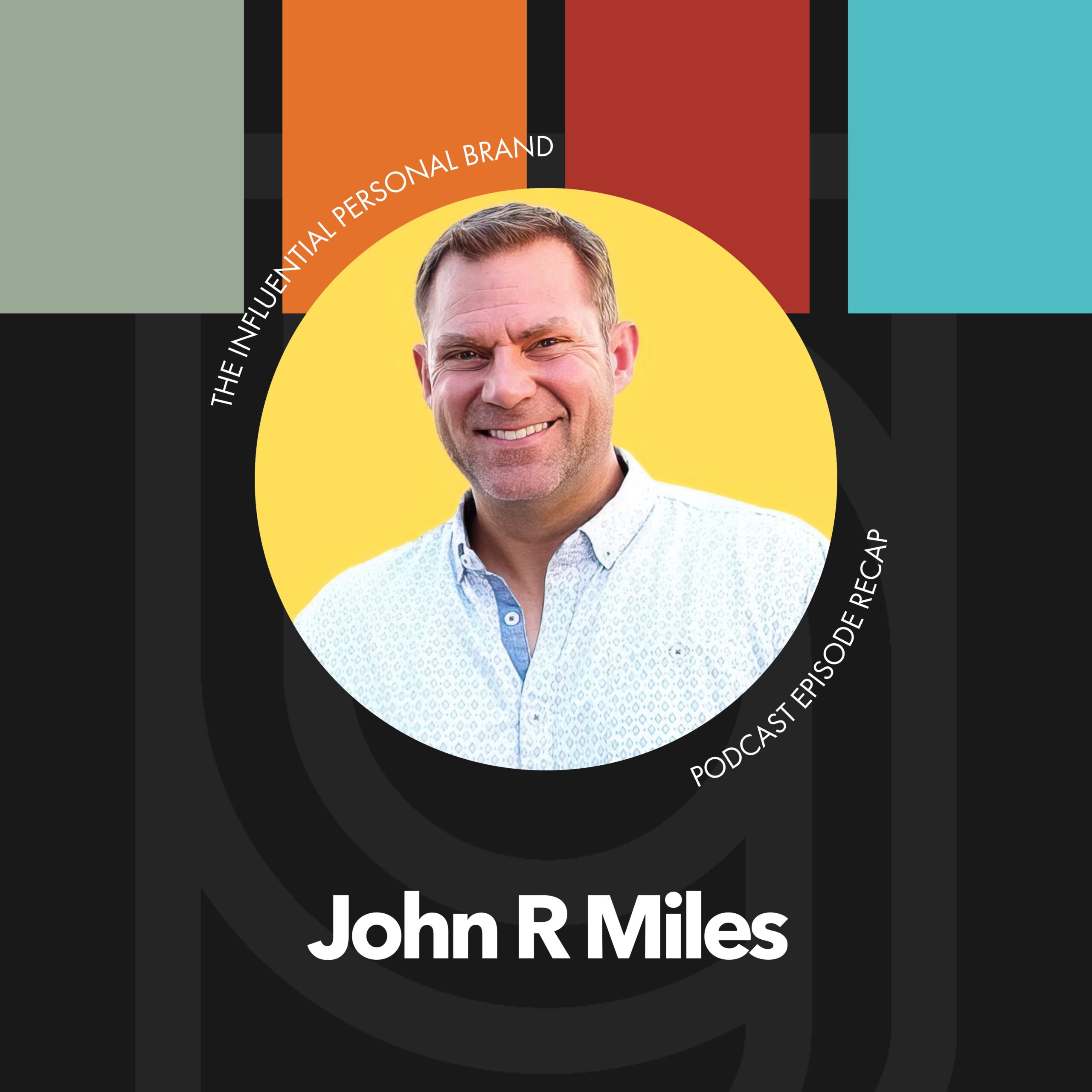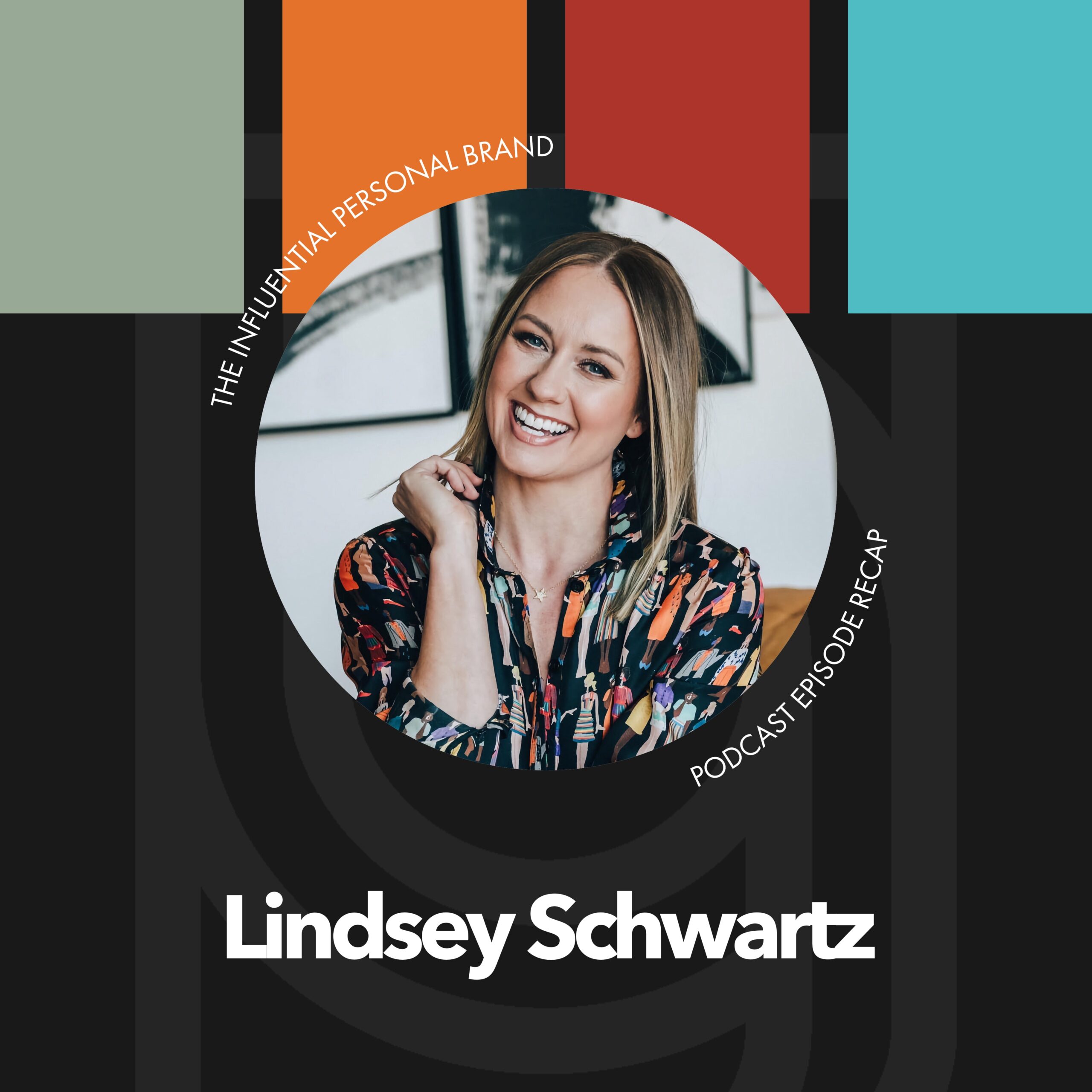AJV: (00:00) [inaudible] RV: (00:06) Hey, welcome to the special recap edition of the influential personal brand podcast. I’m so excited that you got to meet like my mentor, one of my, my real, real early mentors and best friends, you can see how much love I got for Dave. And yeah. You know, I hope if you haven’t listened to the interview that you go listen to it. If you want to know anything about where I started and you know, how it began for me began with Eric gesture and Dave Everyn that’s right. AJV: (00:36) The whole episode is basically just a bunch of bro love from beginning to end. It’s just both of them telling each other how much they love admire and respect and how much they’ve learned from each other, the whole episode. And there’s some takeaways, but there’s also a lot of love. RV: (00:55) Yeah. Well, you know, he’s made a big, yeah, I know. Well, and so I’ll share, I’ll start with my, you know, we’re going to do our top three takeaways. Um, and, uh, AJ came in with her glasses today, which I’m excited about talk nerdy talk nerdy too. Yeah. AJV: (01:12) Screen time, too much screen time. RV: (01:14) Um, so, so one of the things that was a big kind of moment, just a reinforcement, even for me to hear it again, was it just this idea of like, do you love the delivery of speaking and teaching enough that you’re willing to endure the prospecting part of it? Like, do you, do you want it bad enough to figure out a way to do whatever you have to do to generate the business? Now that may be that that might mean you’re the one that has to make the phone calls and send the emails. It might mean that you have to hire someone and pay them to do it. That, you know, there’s lots of things it could mean, but it means you got to figure out that part. And I’ve never met a speaker who was like, Oh my gosh. My favorite thing in the world is to just spend my time getting gigs. Like the reason you become a speaker is you want to be on stage or you want to be live on the webinar. Like you want to be in front of thousands of people, but there’s this part that you have to do. And it’s just the truth. The perspective of going look, what you see on stage is not what the life of a speaker is. It’s all the things. It’s the people and the team and the processes behind the scenes. AJV: (02:25) Uh, mine is kind of similar to that in a much more succinct version, but it’s speaking is not the business. Getting the speaking Gig is the business. That is a much better way of, I say AJV: (02:43) We had the same point. I’m not sure, but at brand builders group, if you’re a client of ours or if you’re just a listener or follow us on social or whatever it is, we kind of have this 13 phase in our 13 event process in four different phases. And we teach you how to craft a keynote, right? That’s a part of what we do in our business. We also teach you the business of speaking, right? So there’s two different topics that we cover. And I thought it was really interesting the way he said that, because there is so much of what we do. It’s called full Key, or it’s called CA what is it called? RV: (03:21) Keynote craft is she doesn’t teach world-class keynote craft is the event that I teach the art of speaking, which is what so many people are drawn to. Right? AJV: (03:32) And I loved what Dave said in the interview where he goes, I love how so many people tell you that you should be a speaker that have no idea what it’s like to be a speaker. You should go share your message. And it’s like, I have no idea what they’re talking about. That’s actually what we teach and what we do. And full keynote calendar, which is the business of speaking. And that is so much of what I loved about this comment is that speaking is not the business. That is the art, right. It is not the business. It is getting the gig is the business. And that is like any other business out there. You have to have marketing, you have to have a team. You have to have staff, you have to have technology. I mean, it’s not like anything else. I mean, it’s the same. So I just thought that was really a nice, succinct way of saying RV: (04:18) A better way of saying it. Yeah, absolutely. But that’s the, that, so two different versions of the same, big takeaway, AJV: (04:25) Second point. So I’ll go and then I’ll leave. I have no doubt. They’re probably similar. This was a very, very good interview for any of you who were like, okay, I want to start building up my speaking business. What are the, you know, behind the scenes behind the curtain? So my second takeaway was this concept of you need to be systematic, methodical in your processes, but very personal in your outreach, because we know so many people in the business of speaking where it’s all about, just put it out on social and do email blast and just do mass mailings and do it all as efficiently as it, but trying to be as effective as possible, but they have no staff. It’s just them or it’s just one person. So they’re really trying to do it as general and as masses as they can. Um, and he’s was saying, it’s like, no, be systematic and methodical in your processes, but be highly personalized in your outreach. And I thought that was a really good way. RV: (05:26) Interesting juxtaposition AJV: (05:27) Sum up. It’s like you can do things that are templative that still feel personal with a little bit of research, with a little bit of effort, with a little bit of like, let me pull this up, let me see. And my third point kind of goes into some of the things that I took away, but it’s not going to share those now, but that was my second. It’s like, you got to have a system and you need to be methodical with it. Right. There needs to be clear, checkpoints of do this, do this, do this, but then also take the time and effort to be personal in your outreach. So it doesn’t feel like another speaker that we’re getting marketed to. Right. I think that was really, that was really, RV: (06:03) Yeah. Yeah. I think that that really is a good, that’s a good dichotomy to understand and, and to be clear on, um, my second takeaway actually was, was different than that. It was a reminder of something that I struggled for so long in my career, and I still struggle with today. And I think it’s in a word it’s being self centered, not being selfish, right? It’s not about taking advantage of other people. It’s just, it’s just that you, as a speaker, it’s so easy to approach the world through what you think and what you do and who you are. And, you know, like what he said was, it’s not about what you do, it’s about what they get. And if you don’t tell people about who you are, tell them about what you can do for them. And that applies both to your marketing and to when you’re on stage, is that, you know, there’s, I think there’s, it’s probably safe to say that any speaker has some level of ego, some, you know, fair level of ego involved in, you know, just the idea of saying, Hey, I should be on that stage in front of all these people. RV: (07:08) Like they should be paying attention to me, which is good. You need, you need some, you need some real confidence to do this right. And pull it off. But at the same time, getting your mind switched to where it’s like, it’s not about you. It’s not about even what you’re passionate about. It’s about connecting your passion to their problem. It’s about connecting your expertise to what they’re struggling with every day. And your marketing has to communicate that your sales person, whoever, if it’s you, or it’s an agent or somebody, they need to be able to connect your expertise to the problems. And then when you’re on that stage in front of the audience, you need to be able to connect what you know, and what you studied and to how people can apply it into their lives. And David told me this exercise, I think when I was 20 something years old and it still to this day has stuck with me. RV: (07:56) When you write, copy on your website, go through and highlight in one color, everything that’s about you and then go through and highlight and another cover, color, everything that is written about your customer and your, you know, your prospect. And you’ll find that almost in every case, it’s a speaker is talking all about themselves and who they are and how great they are and what they’ve done. And very little about the problem they solve and how they help organizations and who is a right fit for them to serve. And so that was just another great reminder of something I’d heard over and over that you just can’t hear enough of. AJV: (08:33) You always know when Rory really likes something because he talks so loud. So she’s always kidding. RV: (08:42) she’s always kidding I’m gonna have me for like yelling and stuff, which is part of it. AJV: (08:45) I got in this tiny little room, right? Like one foot away. RV: (08:50) I got banished to the basement, by the way, I used to be upstairs. And I’ve been at one AGA tried to banish me to the wilderness. When we were building our house, she was like, what do you think about putting your office out in the forest? Which is we live in like a little wooded area. And I was like, you’re banishing me to the woods. We’re not even moved daily upset. Yeah, it was bad. So anyways, I’ve been banished to the basement. So this is my you’re in my yelling zone. Yes. I’m excited. AJV: (09:18) Dave actually talked about something in their interview that I thought was really good. He said, if you think that you’re going to get paid to get on stage and have some sort of cathartic experience, you’re severely mistaken, right. When people say, gosh, you’ve got to share your message, or you gotta, you gotta tell your story to some degree. It’s like, no, you don’t. It’s it’s how do they perceive your story? That would benefit them? What can they learn from your message that would solve their problem? And so many people, and I think you’ve said this, or you took it some somewhere, but it’s like this concept of an, an I focus story. You focus message. And I think that’s really important because you can tell your story, but it still has to resonate with the audience. Um, that was really good. That’s not my third point. My third, RV: (10:06) Well, that was a bonus tag onto my point. That was really similar. But yeah, that’s Craig Valentine. Y’all 1999 world champion of public speaking. Tell an eye focus story with a youth focused message. AJV: (10:16) Okay. My last point, um, and I just, it’s a combination of something that Rory said and something that Dave said, and I just kind of put it together. And I thought it was really good. Is that speaking, being a keynote speaker, right? Being a professional speaker is one of the best jobs on the planet. However, it is not a good business model because it’s not automated. It’s not evergreen. It’s not digital. It’s not recurring and it’s not scalable. It’s very limited. And it’s you on an airplane a lot, it’s you away from your family a lot. However speaking is one of the best ways of marketing your business. So let me say that all again. I thought this was really good. It’s like being a speaker is one of the best jobs on the planet for you for finite amount of time. But it’s one of the worst business models in terms of growing and scaling something. But it’s one of the best ways of marketing, a bit RV: (11:17) Paid marketing. You get paid to market. AJV: (11:19) That’s really good. And I think for all of you out there who were like, I want to be a speaker and I want to scale my speaking business. You also have to be asking yourself, what’s my backend. RV: (11:31) Yeah. If you want to build a business, otherwise you just, you have a job and you’ll go play in the plane, the plane, right. AJV: (11:36) Needs, age, 70, 80, whatever. You’re not going to want to do that. Or your wife isn’t or your kids. Aren’t like, at some point you don’t want to be gone 200 days a year, right. Unless you’re living the single live live in Lavita loca. Totally fine. But I would bet for most of you out there where this seems like a, uh, a passion and I loved, and this is last thing I’ll say, he said, just remember, like speaking is my job. It is not my passion. And he said, my passion is my family. That I’m not saying that it has to be yours, but speaking is my job. It’s not my passion. So it’s speaking a job for you or is it your passion and what does that look like in terms of growth and scale and money and how does that? RV: (12:22) Yeah, I would totally agree with that. It’s a job. It’s a great job, not a great business. Now you can like, like any job, you can work a job for your whole career and make enough money. And then, and then retire. And AJV: (12:35) We know plenty of seven figure speakers. You can make tons of money. RV: (12:39) Yeah. Just know that on the front end, like you’re saying, it’s like, that’s not going to be the way that you scale a huge business. Um, so my last one is actually, it’s an ageism, honestly, it’s from you. And there was something that Dave said that, you know, a lot of things he said that really reminded me of, I think, a philosophy that you carry, that I’ve always admired, that I have also found to be true, that I think you believe, and you practice really well, which is that everyone becomes a customer eventually. Like if you stay in touch, like they may not book you this year. They may not look us next year, but they’re gonna, if you treat them well and you care about them and you stay in front of them and you just follow up with them, everyone buys eventually. And I think that that is something that, you know, he was saying that just really reminded me of just like, yeah, you’ve got to have a process here, you know, the system and stay in touch. RV: (13:36) And just, especially in the speaking world, I feel like if you get really good, like if you’re following the brand builder journey stuff, and like, you’re doing the things we’re telling you to do in terms of crafting your positioning and building your marketing and all that sort of stuff, at some point, you’re going to be really good. And once you become really, really good, you know, if you’re not already, well, yeah. Some of you already are already. I mean, we can all get better. We can all get better. But when you’re really, really good, these meeting planners and companies, they need to hire you. They have to book somebody. And at some point, if you’re really good, they’re gonna go with you. If you’ve stayed in touch with them for five, six, seven, eight, 10 years, like at some point it’s just timing, AJV: (14:22) But that’s with any good business model, right? You provide enough value and have a good longterm followup strategy longterm. You know, I have this concept, which I guess I’m what you’re referring to is it’s not, no, it’s just not right now. That is my philosophic. Belief with all customers, with all prospects who don’t buy, it’s not, no, it’s just not right now. Um, and so, um, again, consent, she’s concise defying. RV: (14:52) She’s concise defying me. AJV: (14:55) Yeah, it’s true. It’s like you got to have a strategic and methodical plan when Dave talked a lot about that and gave lots of tips. Like if you want to build a speaking business, you need to go and listen to the interview of somebody who truly is at doing it for the long haul. He’s had a very consistent and sustainable speaking business for 20 years. Um, and he gives a lot of tips away. So you really do need to go check out the interview. We’re pulling out some of the things that we took away, but there’s so much that we did not cover. RV: (15:23) Yep. Very methodical process. And I would also say, you know, in a world of virtual keynotes, all of this still applies if not even more. And, um, yeah. So go check out the interview, get to meet one of my best buddies, Dave Afrin. Uh, thanks for listening to AIG and I banter and hopefully share some highlights that are useful for you. We love you. We’ll catch you next time. Bye. Bye. AJV: (15:45) [inaudible].








